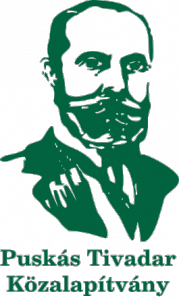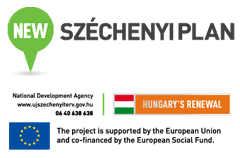Project objectives
The permanently traceable digital convergence, i.e. the information and data handling, communicational value producing, moreover entertaining and other functions are concentrating in to less and less devices that is increasing the operational failure risks of the systems. The less number of devices used for the necessary functions, the more critical their optional failure will be.
The problems, deficiencies of these areas are primarily approached the technological side, although the system failure deficiency or even willingly carried out attack can have a strong spill-over effects in the economy and the society.
The aim of the project is that the data obtained during existing and future cooperation carried out with The National Cybersecurity Center (CERT), should be compared to the secondary data sources reflecting the IT-knowledge of the national economy. In the framework of the primer research the project would assess the real effects of IT-vulnerability in the operation of the economic and public role-players and thus it would evaluate the effects that could be caused by the resulting risks and their inappropriate handling in the economic performance. The forerunner of the project was the research work carried out in cooperation of the „Puskás Tivadar” Public Fund.
Based on these results proposals can be set up by the application of which risks can be moderated and their negative effects on GDP-production can become more manageable, quantifiable and decreasable.
The final aim is an unified risk assessment methodology that can help the political or economic decision makers to assess the potential effects of these threats in a quantified form and thus can be an appropriate input for planning the necessary (counter)measures.
Research questions
- Taking into consideration that the current hardware and software tools of the population as well as their IT-knowledge and readiness, the research attempts to find an answer how these IT-risks can influence the lives of the users related to availability and functionality of the tools and systems used by them. To what extent can those risks draw back the confidence laid in ICT and how this effects the digital literacy capability considered as a basic knowledge more and more in the present knowledge based society.
- The research is going to assess, similarly to the household sector, to what extent the Hungarian corporate sector is exposed to the evaluation of ICT-tools and technologies. The assessment of the corporate toolset will answer the involvement size of this sector. The primary researches will then attempt to find an answer to what extent a security issue can draw back is time and efficiency the operation of the company.
- Starting from the results of research issue 2, general model establishment is attempted by the help of which the research aims at finding out the missing size of the GDP in conclusion of the effect and frequency of security events touching the operation of the company. This can result in countable and traceable indices for the decision makers of the company, who determine the financing and resources of the preventing and failure avoiding measures.
- The size of the amount of IT and security equipment possessed by public administration sector can show to what extent the critical infrastructures influencing the two above mentioned sectors income production capabilities is prepared for handling the risks.
Support
The project is funded by OTKA PD109740 „IT és hálózati sérülékenységek tovagyűrűző társadalmi-gazdasági hatásai”
Related materials
http://www.otka.hu/en
Publikációk:
- Kiss, F., Horváth, A., Török, M., Szanyi, I.: Modern ICT technologies – situation and trends. In: Tourism and ICT aspects of balkan wellbeing. Alma Mater Series, Foundation for Information Society, 2015. pp.155-186. (ISBN: 978-615-80061-2-5)
- Horváth, A. Dr.: Informatikai sérülékenységek és kockázatok – a társadalmi-gazdasági hatások tükrében: A második év eredményei. In: Raffai Mária, Pozna Claudiu Radu, Dobay Péter (szerk.) OGIK’2011: 8. Országos Gazdaság-informatikai Konferencia. Konferencia helye, ideje: Győr, Magyarország, 2011.11.11-2011.11.12. Paper E/2.
- Horváth, A. Dr.: IT és hálózati sérülékenységek tovagyűrűző hatásai a gazdaságban. In: Networkshop 2011: Kaposvár, [2011]. április 27-29.. Konferencia helye, ideje: Kaposvár, Magyarország, 2011.04.27-2011.04.29. Budapest: Nemzeti Információs Infrastruktúra Fejlesztési Intézet (NIIFI), Paper 013.


